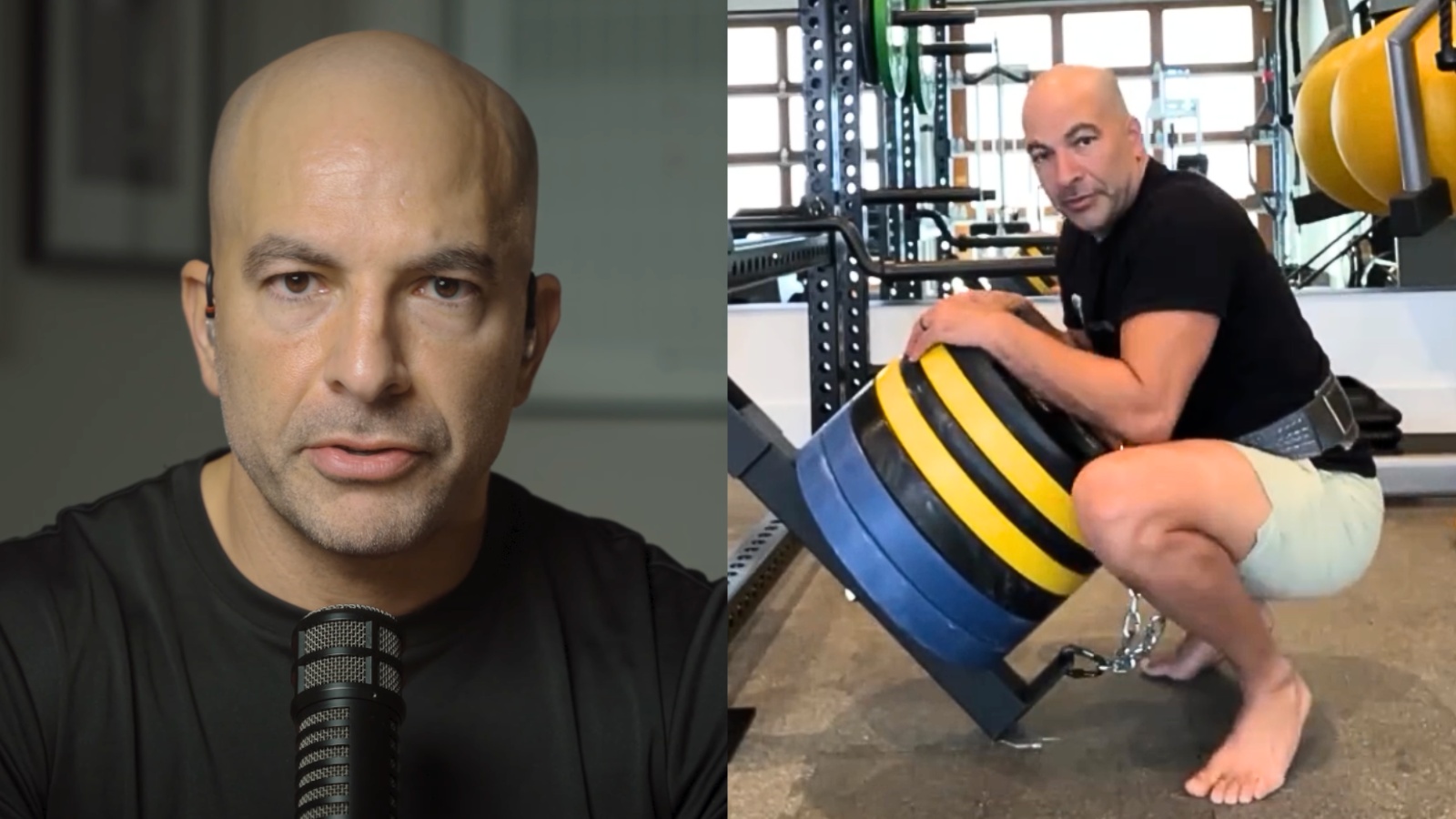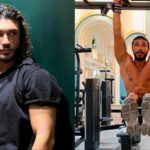Dr. Peter Attia, a celebrated physician, always embraces scientific discussions about exercise and nutrition. In his latest endeavor, Dr. Attia joined Professor of Physiology of Exercise and Nutrition Dr. Luc van Loon to discuss when is the best time to take protein after a workout.
Known for his brilliant work in longevity medicine, Dr. Peter Attia has become a leading voice in the fitness industry, often collaborating with bright minds such as Dr. Andrew Huberman, Dr. Stuart McGill, Dr. Andy Galpin, and Dr. Rhonda Patrick.
Protein intake has become a topic of concern for most who lead active lifestyles, as was the case with Dr. Attia, who has been open about his exercise program, having offered insight into the routine he would use for longevity and healthy living. Given that protein serves as an essential component of muscle-building efforts, Dr. Attia and Dr. Luc van Loon lay out the best times to take it after training.
https://www.instagram.com/p/C1fPHNKOc0V/
Dr. Peter Attia and Dr. Luc van Loon Talk Gaining Muscle and Optimal Times for Protein Intake
First, Dr. Attia asks Dr. van Loon about when is the best time to ingest protein following a workout.
“Now, truthfully, in part, it’s because, well I’m going to ask you this question, let’s just assume two scenarios, scenario one, finish exercising, finish strength training, consume nothing but water or coffee for another three or four hours before consuming a high protein meal versus finish exercising and immediately consume 25 grams of whey protein in a shake with nothing else in it. Just whey protein and water.
You’re getting 100 calories. Chug it down and then eat that protein-rich meal of 40 grams four hours later. Significant difference in muscle protein synthesis between these two over the course of days or does it all come out in the wash where assuming you get iso amounts of protein throughout the day, does it matter?” asks Dr. Attia
According to Dr. van Loon, exercise makes the muscles more sensitive to the anabolic response from food, especially in the first five hours after a workout.
“In 24 hours definitely there is a difference,” shares Dr. Luc Van Loon. For example, if you ingest protein immediately after exercise you get at least for the first five hours, you definitely have a much greater response because exercise makes the muscle more sensitive to the anabolic response to food intake.”
Dr. Attia specifies that he does his strength training in the morning, and mentions that he doesn’t always consume protein immediately after.
“I always do my strength training in the morning. And many days I just don’t I’m either not that hungry or I run out of time before I need to jump into stuff. I’m not always diligent about eating or consuming protein right after that workout.”
Dr. van Loon explains that those who aren’t able to ingest protein in the first five hours after a workout shouldn’t be concerned because the body will still respond to protein the next day. However, he underlines that this response won’t be as noteworthy given the lapse in time from exercise.
“However, what people forget is that your response to breakfast the next day is still increased, and probably also your lunch and dinner the next day. So, if you do an exercise session today and you get all freaked out that you didn’t get a milkshake after your session, don’t worry because the next day all your three meals are going to be greater responses because of the exercise.”
“I get so many times the questions like how important is the meal before or after the exercise? And I say if you’re doing consistent training then there are always three meals before your session and after your session because you train every day.”
Dr. van Loon acknowledges that the muscle protein synthesis response will be more exaggerated if someone ingests protein shortly after exercise.
“Is there a benefit of immediately after exercise versus a few hours later? We have done that study. Not sure where we touched the topic as well, previous protein feeding, that’s a topic we have been working on a lot. We gave people even 60 grams and exercise in the evening and then 40-60 of them I don’t remember, we gave protein then and measured the response the next morning after breakfast.”
“If there is a window of opportunity and you get 60 grams of protein immediately after exercise, maybe you shorten the window of opportunity. If you are already providing the exercise after the session, you don’t respond as well the next day or the next morning,” explains Dr. Luc Van Loon.
Simply put, Dr. Attia emphasized that the body responds to protein more effectively when it is ingested around a workout. However, he adds that muscle protein synthesis still occurs hours or days later but at a reduced capacity.
“What I’m basically hearing you say is if you have 100 units of response in you, the timing of your meal might not impact the total amount of response, it just determines when that response occurs.
So if I slug that 25 grams of whey protein as I’m walking out of the gym, I would get more of my 100 units of response but I will get less of it when I have it four or five hours later when I have a big protein lunch,” shares Dr. Attia.
https://www.instagram.com/p/C3Av3TxOvCd/
Aside from Dr. Attia and Dr. van Loon, health expert Dr. Rhona Patrick has been open about protein demands as of late. She revealed her favorite sources of protein for muscle building.
“You have to think about okay where do I get my protein? Animal meat is probably the best sources because essential amino acids are very highly concentrated in poultry and meat and fish.
If you are a vegetarian or a vegan you just have to work very hard and supplement with protein powders and stuff to get that amino acids composition up.”
Although bodybuilding legend Arnold Schwarzenegger credits protein as vital to building muscle, he recently pointed out that the quality might not be as important.
“The new study — which reviewed existing protein research — found that the quantity of protein you consume determines the need for quality. In other words, if you want to eat less protein, it’s best to focus on more premium protein. But, if you prefer eating a higher protein diet, then it’s OK if you’re not always consuming the highest absorbing options.”
With doctors and bodybuilding legends offering up study-backed data on protein intake, fans continue to learn how to tailor their diets and exercise routines for maximum results. Dr. Peter Attia and Dr. van Loon agree it’s best to ingest protein within five hours of exercise to optimize muscle protein synthesis.
RELATED: Arnold Schwarzenegger Shares How Protein Shakes Can Assist With Weight Loss Goals
Watch the full video from Dr. Peter Attia’s YouTube channel below:
Tip: If you're signed in to Google, tap Follow.









